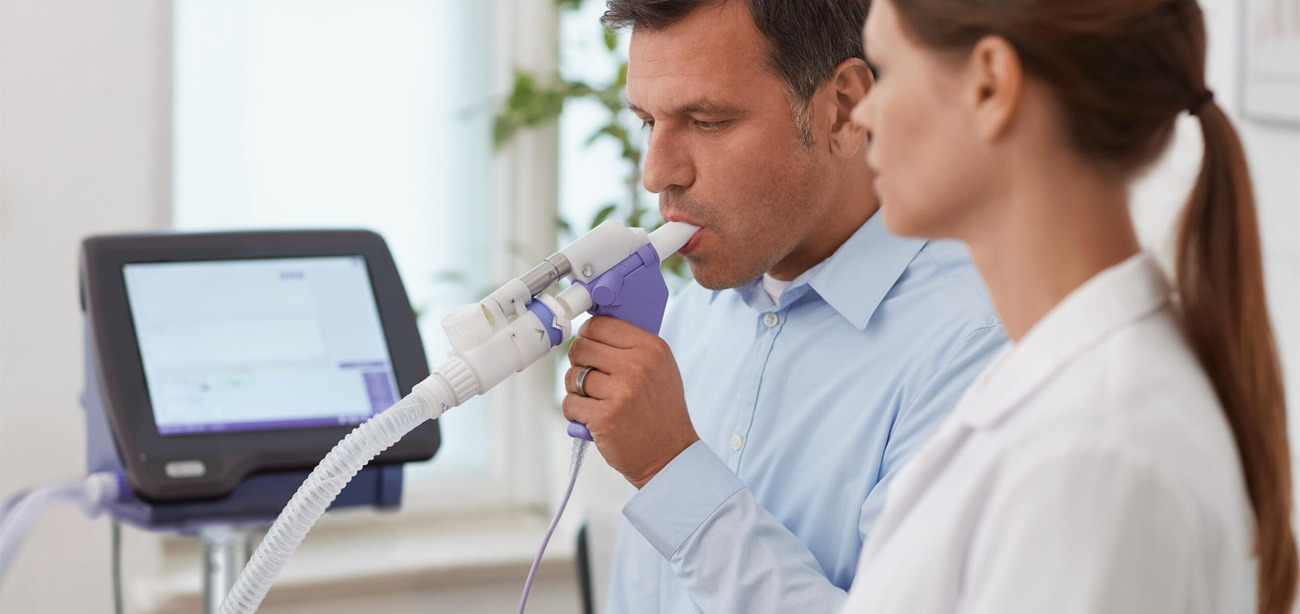- Home
- Our Providers
- Our Services
- Abdominal Aortic Aneurysm Screening
- Alzheimer’s Disease
- Antibiotics Treatment
- Arthritis
- Asthma and Allergies
- Blood Work
- Breast Cancer Screening
- Cancer Screenings
- Cervical Cancer Screening
- CHF
- Chronic Diseases Management
- Colon Cancer Screening
- Physical Exam and Preventative Care
- COPD
- Covid Testing
- Dementia
- Depression and Anxiety
- Diabetes Mellitus Type 1 & 2
- Ear Cleaning
- ECG
- Fibromyalgia
- Flu Tests
- GERD
- Heart Disease
- Hepatitis Screening
- High Blood Pressure
- High Cholesterol
- HIV Screen Tests
- Hormone Therapy
- Iron Injection
- Joint Injection
- Kidney Disease
- Lung Cancer Screening
- Medical Wellness Visits
- Men’s Health
- Nutrition Consultation
- Obesity
- Osteoporosis
- Peripheral Neuropathy
- Peripheral Vascular Disease
- Pre and Post Surgical Evaluations
- Prostate Cancer Screening
- Pulmonary Disease
- Pulmonary Function Test
- Seizure
- Sexual Transmitted Diseases
- Sick Visits
- Skin Biopsy
- Sleep Apnea
- Smoking Cessation and Reduction
- Stroke
- Testosterone Injection
- Thyroid Dysfunction
- Ultrasound
- Urine Analysis
- Vaccinations
- Vascular Studies
- Vitamin B12 Replacement
- Weight Loss
- Wound Care and Suture Removal
- Telemedicine
- Join Our Team
- Patients
- Book Appointment
Pulmonary Function Test
At CoreMed Plus, we understand the importance of respiratory health and pulmonary function testing (PFT) ‘s role in diagnosing and managing respiratory conditions. We offer comprehensive PFTs to help evaluate lung function and diagnose various respiratory conditions.
Our team of healthcare professionals is highly trained in performing PFTs and interpreting the results to provide accurate diagnoses and develop individualized treatment plans. We use state-of-the-art equipment and advanced techniques to ensure the highest level of accuracy and precision in our testing.
Our PFTs include a range of tests, such as spirometry, lung volume measurement, diffusion capacity, and bronchial provocation testing, which can provide important information about lung function and respiratory health. These tests can be used to diagnose respiratory conditions such as asthma, COPD, pulmonary fibrosis, and bronchitis, monitor the progression of respiratory conditions, and evaluate the effectiveness of treatment.
At CoreMed Plus, we are committed to providing our patients with the highest quality care and ensuring they access the latest diagnostic tools and treatments. Our team works closely with each patient to develop an individualized care plan addressing their needs and concerns.
If you are experiencing respiratory symptoms or have concerns about your lung function, we encourage you to schedule a consultation with our team to discuss the possibility of PFTs. Our team will work with you to determine the best course of action for your respiratory health and provide the care and support you need to achieve optimal lung function.

What is a Pulmonary Function Test
Pulmonary function testing is a group of tests that are used to evaluate the function of the lungs and the respiratory system. These tests can provide important information about how well the lungs are working and can be used to diagnose and monitor a wide range of respiratory conditions. Here is a more detailed explanation of what pulmonary function testing entails.
What is a Pulmonary Function Test?
A pulmonary function test (PFT) is a group of tests that measures how well the lungs and respiratory system are functioning. PFTs are usually performed by a respiratory therapist or a pulmonary function technologist, who will guide the patient through the testing process.
The tests involved in a PFT may include:
- Spirometry: Spirometry is a simple and non-invasive test that measures lung function by assessing how much air a person can inhale and exhale and how quickly they can do so. During the test, the patient will be asked to take a deep breath and exhale forcefully and promptly into a mouthpiece attached to a spirometer. The spirometer measures the volume of air exhaled and the speed at which it is exhaled, which provides information about lung capacity, airflow obstruction, and other respiratory parameters.
- Lung Volume Measurement: Lung volume measurement is a test that measures the total amount of air that a person’s lungs can hold. This test can help diagnose conditions that affect lung volume, such as pulmonary fibrosis or emphysema. The patient will be asked to breathe in and out through a mouthpiece attached to a machine that measures lung volume. This test is usually done in conjunction with other PFTs.
- Diffusion Capacity: Diffusion capacity measures how well oxygen moves from the lungs into the blood. During the test, the patient will breathe in a small amount of gas containing carbon monoxide, which is then exhaled. The amount of gas that is absorbed by the bloodstream provides information about how efficiently oxygen is being transferred from the lungs into the blood.
- Bronchial Provocation Testing: Bronchial provocation testing measures the sensitivity of the airways by exposing them to a substance that can cause them to constrict. This test is used to diagnose conditions such as asthma or exercise-induced bronchoconstriction. During the test, the patient will inhale a small amount of a substance, such as methacholine or histamine, which can cause the airways to constrict. The patient’s lung function will then be measured to determine the degree of airway obstruction.
Why is a Pulmonary Function Test Done?
A PFT may be done for a variety of reasons, including:
- Diagnosis: Pulmonary function tests (PFTs) are commonly used to diagnose respiratory conditions such as asthma, chronic obstructive pulmonary disease (COPD), pulmonary fibrosis, and bronchitis. PFTs can help determine the severity of the condition, assess the degree of lung function impairment, and provide important information about treatment options.
- Monitoring: PFTs can also be used to monitor the progression of respiratory conditions and to evaluate the effectiveness of treatment. For example, a patient with asthma may undergo regular PFTs to assess lung function and adjust medication dosages as needed. Similarly, a patient with COPD may undergo PFTs to monitor lung function and evaluate the effectiveness of respiratory therapies.
- Pre-Operative Evaluation: PFTs may be done before certain surgeries to evaluate a person’s lung function and identify any potential risks or complications. This is particularly important for surgeries that may impact lung function, such as lung resection or thoracic surgery. PFTs can help healthcare providers determine whether a person is a suitable candidate for surgery and can help develop an appropriate perioperative management plan.
- Occupational Health: PFTs may be done for workers who are exposed to respiratory hazards on the job, such as chemicals or dust. These tests can help identify respiratory conditions caused by occupational exposure and can help develop appropriate workplace safety measures and treatment plans.
- Disability Evaluation: PFTs may be done as part of a disability evaluation to determine the extent of respiratory impairment. This information is important for determining a person’s eligibility for disability benefits and for developing an appropriate treatment plan.

What to Expect During a Pulmonary Function Test
A pulmonary function test (PFT) is a diagnostic test that measures lung function and respiratory health. It is a non-invasive procedure that is typically performed in a healthcare provider’s office or a respiratory laboratory. If your healthcare provider has recommended a PFT, you may be wondering what to expect during the test. Here’s what you need to know:
Preparation
Before the test, your healthcare provider may ask you to avoid certain activities or medications that could affect your lung function. For example, you may be asked to avoid smoking, exercise, and certain medications for a period of time before the test. You may also be asked to wear comfortable, loose-fitting clothing that allows you to breathe freely.
The Test
The PFT typically consists of several tests measuring various aspects of lung function. The most common test is spirometry, which measures how much air you can inhale and exhale, as well as how quickly you can do so. During this test, you will be asked to take a deep breath and blow into a small tube connected to a spirometer. You will be asked to blow out as hard and fast as you can until you can no longer exhale any more air. You may be asked to repeat the test several times to ensure accuracy.
Another test that may be performed is lung volume measurement. This test measures the total amount of air that your lungs can hold. During this test, you will be asked to breathe in and out of a machine measuring the air volume in your lungs.
Diffusion capacity is another test that may be performed. This test measures how well oxygen moves from the lungs into the blood. During this test, you will be asked to breathe in a small amount of gas, hold your breath briefly, and then exhale.
Bronchial provocation testing may also be performed. This test measures the sensitivity of the airways by exposing them to a substance that can cause them to constrict. During this test, you will be asked to inhale a small amount of a substance, such as methacholine, and then perform spirometry to measure changes in lung function.The test duration varies depending on the specific tests being performed, but it typically takes about 30-60 minutes to complete.
Post-Test
After the test, your healthcare provider will review the results with you and discuss any implications for your respiratory health. Further testing or treatment may be recommended if the test reveals any abnormalities.
It is important to note that PFTs are generally safe and non-invasive, but in rare cases, they can cause complications such as coughing, lightheadedness, or shortness of breath. If you experience discomfort during the test, be sure to inform your healthcare provider immediately.
A pulmonary function test is a valuable diagnostic tool that can provide important information about lung function and respiratory health. If you have been recommended for a PFT, it is important to follow any preparation instructions provided by your healthcare provider and communicate any concerns or discomfort during the test. At CoreMed Plus, we are committed to providing our patients with the highest quality care and support throughout the PFT process.

Why Choose CoredMed Plus For a PFT Test
Choosing the right healthcare provider is essential if you require a pulmonary function test (PFT). At CoreMed Plus, we offer comprehensive PFT testing and exceptional patient care. Here are just a few reasons why you should choose CoreMed Plus for your PFT needs:
Expertise: Our team of healthcare professionals has extensive experience in performing PFTs and interpreting the results. We use state-of-the-art equipment and technology to ensure accurate and reliable results.
Convenience: We understand that your time is valuable. That’s why we offer flexible scheduling options and convenient locations for PFT testing. You can expect minimal wait times and efficient testing procedures to ensure that you can get back to your day as soon as possible.
Patient Care: At CoreMed Plus, we are committed to providing our patients with the highest quality care and support. We strive to make your PFT experience as comfortable and stress-free as possible, and our friendly and knowledgeable staff will be there to answer any questions you may have.
Comprehensive Testing: We offer a full range of PFT tests to evaluate different aspects of lung function and respiratory health. This includes spirometry, lung volume measurement, diffusion capacity, and bronchial provocation testing. Our comprehensive testing ensures that we can accurately diagnose respiratory conditions and provide the most effective treatment options.
Customized Treatment Plans: If the results of your PFT indicate any abnormalities or respiratory conditions, we will work with you to develop a personalized treatment plan. Our team of healthcare professionals will provide you with expert guidance and support throughout your treatment journey.
Affordability: We understand that healthcare costs can be a concern for many individuals. At CoreMed Plus, we offer competitive pricing for PFT testing and accept most major insurance plans. We also offer flexible payment options for those without insurance coverage.
We are dedicated to providing our patients with the highest quality care and support, and we look forward to helping you achieve optimal respiratory health.
Contact Information
If you’re ready to take charge of your health and embark on a journey toward a healthier, happier life, we invite you to contact us today. Our compassionate and knowledgeable staff is excited to take your call and help you on your health journey. We will work closely with you to develop a customized treatment plan that is right for you and provide the support and care you need every step of the way.
Don’t let health concerns hold you back – contact CoreMed Plus today and let us help you achieve optimal health and wellness. We look forward to hearing from you and helping you achieve a healthier, happier life.
- Email: [email protected]
- Phone: +1 248-666-6005




